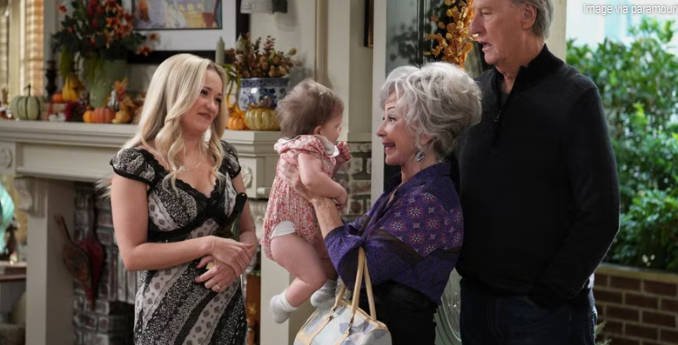
Why Young Sheldon Ended After Seven Seasons
Introduction: Wrapping Up a Remarkable Journey
After seven seasons of heartfelt storytelling, CBS’s Young Sheldon has officially come to an end. The show, which served as a prequel to the legendary sitcom The Big Bang Theory, explored Sheldon Cooper’s formative years with a balance of humor, emotion, and insightful character development. But why did the series call it quits after just seven seasons, especially given its immense popularity? Let’s dive into the reasons behind this decision and how it connects to Sheldon’s larger story.
The Premise That Captured Fans’ Hearts
Sheldon’s Childhood Brought to Life
Young Sheldon brought viewers into the world of a brilliant but socially awkward child growing up in East Texas. Iain Armitage delivered a captivating performance as young Sheldon Cooper, seamlessly bridging the gap between his character and Jim Parsons’ portrayal in The Big Bang Theory.
From a Spin-Off to a Standalone Success
While initially riding on the coattails of its predecessor, Young Sheldon quickly established its identity. It wasn’t just a comedy; it was a heartfelt exploration of family dynamics, ambition, and the challenges of growing up different.
Why Young Sheldon Ended After Seven Seasons
A Story With a Predefined Arc
The decision to end Young Sheldon wasn’t due to declining ratings or cast departures. Instead, it was a deliberate creative choice. As executive producer Steve Holland told Deadline, Sheldon’s journey to Caltech at age 14 marked a natural conclusion to the story.
“Knowing that at 14, he goes off to Caltech… it felt like the right time to end it strong while it was on top.”
Ending the show at this pivotal moment allowed the writers to honor Sheldon’s established timeline without stretching the story unnecessarily.
A Transition to a New Phase of Life
At 14, Sheldon’s life takes a dramatic turn. His father, George Sr., suffers a fatal heart attack, and Sheldon begins his academic journey at the California Institute of Technology (Caltech). These events represent a seismic shift, making it clear that continuing the series beyond this point would mean telling a fundamentally different story.
The Creative Vision Behind the Ending
Staying True to the Big Bang Universe
Chuck Lorre, co-creator of Young Sheldon, emphasized the importance of adhering to the timeline set by The Big Bang Theory. In an interview with USA Today, he explained:
“The show is called Young Sheldon, and that’s not true anymore [if we continue]. We got to watch this guy grow up, and it was wonderful. It just felt like the right time.”
Ending on a High Note
Rather than risking a decline in quality, the creators chose to conclude Young Sheldon at a point where the story felt complete. This decision ensured that the show’s legacy remained untarnished.
The Emotional Impact of the Final Season
Sheldon’s Farewell to Childhood
The seventh season of Young Sheldon was filled with moments that signaled the end of an era. From Sheldon’s academic triumphs to his family’s struggles, viewers saw the culmination of years of character development.
A Tribute to George Sr.
George Sr.’s passing was handled with care, reflecting the emotional weight of this moment in Sheldon’s life. Lance Barber’s portrayal of George Sr. brought depth and nuance to a character whose influence shaped Sheldon’s future.
What’s Next for Sheldon Cooper’s Story?
The Caltech Years: A New Chapter
While Young Sheldon ended at the perfect time, fans can still imagine what Sheldon’s life at Caltech might look like. However, as Steve Holland noted, this phase of Sheldon’s life would require a completely different show.
The Legacy of Young Sheldon
By focusing on Sheldon’s childhood, the series added layers to his character, enriching the way fans perceive him in The Big Bang Theory. It bridged the gap between the genius we knew and the child he once was.
Why Ending Now Was the Right Choice
Avoiding Redundancy
Dragging the story beyond its natural conclusion could have diluted the emotional impact of Young Sheldon. Ending on a high note ensured that the series remained impactful and memorable.
A Complete Arc
The show fulfilled its purpose by giving fans a detailed glimpse into Sheldon’s early years. From his first experiments with science to his complicated family relationships, Young Sheldon told a complete and satisfying story.
Conclusion: A Bittersweet Goodbye
Young Sheldon ended not because it had to, but because it was the right time to do so. The series offered a heartfelt exploration of Sheldon’s formative years while respecting the timeline established in The Big Bang Theory. Though saying goodbye is always tough, the show’s conclusion felt earned and satisfying, leaving fans with fond memories of the Cooper family.
FAQs
- Why did Young Sheldon end after seven seasons?
The creators decided to end the show at a natural point in Sheldon’s timeline, as he transitioned to Caltech at age 14. - Did any cast members want to leave the show?
No, the decision to end the series was not due to cast departures but a creative choice by the writers. - What happens to Sheldon after Young Sheldon ends?
After the events of Young Sheldon, Sheldon begins his academic journey at Caltech, where he remains until The Big Bang Theory begins. - Why didn’t Young Sheldon continue with Sheldon’s Caltech years?
The creators felt that this phase of Sheldon’s life would require a completely different show and didn’t align with the premise of Young Sheldon. -
Will there be a spin-off or continuation of Young Sheldon?
There are no confirmed plans for a spin-off, but fans can always hope for future projects in the Big Bang universe.